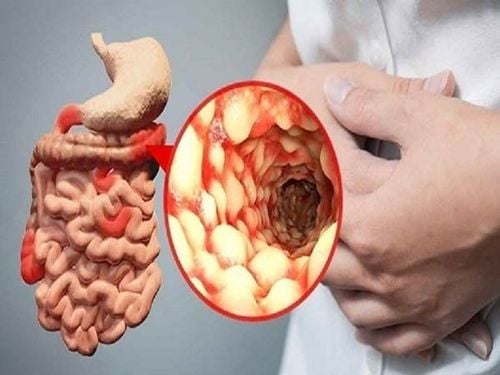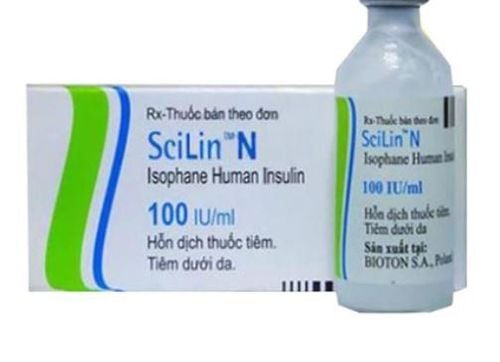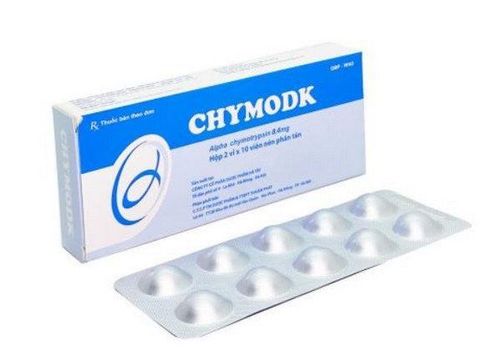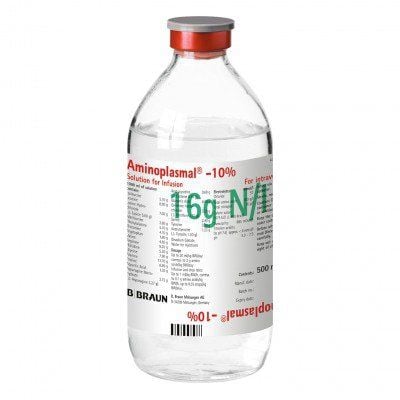This is an automatically translated article.
The article is expertly consulted by Master, Doctor Phan Thi Cam Van - Department of Pediatrics - Neonatology - Vinmec International General Hospital Da Nang. He has 07 years of experience as a Resident Doctor and a Pediatrician - Neonatal Doctor at Hue Central Hospital and Hue University Hospital of Medicine and Pharmacy. In particular, he has strengths in the care and treatment of newborns, neonatal resuscitation, respiratory and digestive diseases, feeding, and common newborn problems.The rate of retinopathy in premature babies is very high, especially leaving visual impairments in premature babies under 28-30 weeks of gestation and babies with birth weight less than 1.5 kg. This is the cause of blindness in children.
1. What is retinopathy of prematurity?
Retinopathy of prematurity (ROP) is a medical condition of the eye caused by abnormal development of retinal blood vessels.The disease usually occurs in babies born before 31 weeks of pregnancy and weighing less than 1.5 kg. The younger a baby is born, the more likely they are to have retinopathy. This disorder, which usually affects both eyes, is one of the most common causes of long-term vision impairment and blindness in children.
Retinopathy of prematurity has 5 stages:
Stage I: There is a slight growth of abnormal blood vessels; Stage II: There is moderate growth of abnormal blood vessels; Stage III: There is severe growth of abnormal blood vessels; Stage IV: There is severe growth of abnormal blood vessels and partial retinal detachment; Stage V: Total retinal detachment. Retinal conditions in premature babies are divided into two types: mild disease that can heal on its own and severe disease that requires treatment. Most cases of retinopathy of prematurity are mild (accounting for about 90%), the disease improves on its own and has no long-term effects. However, parents still need to take their children to have regular eye exams and follow up regularly to avoid possible complications later on such as strabismus, myopia, glaucoma, delayed retinal detachment,... Therefore Long-term follow-up in a pediatric ophthalmology hospital is necessary for timely detection and intervention.
Severe neonatal retinopathy needs to be treated as soon as possible, otherwise it will cause vision loss, in many cases permanent blindness.

2. When should a premature baby get an eye exam?
Most children with ROP are only brought to the doctor when the disease is severe. Some families, too eager to find the light for their children, have collected all the money to send their children abroad for treatment, but the results are very limited. Because when the nerve has atrophied due to too much damage to the retinal cells, even with surgery abroad with modern means, children still do not have the opportunity to see light.The rate of ROP according to gestational age is 83% with pregnancy under 28 weeks and 30% with pregnancy over 31 weeks; by weight is 90% for babies born weighing less than 750g and 47% for 1000 - 1250g.
Therefore, doctors recommend, need to appoint ROP examination in all babies with:
Birth weight from 1,500g to 2,000g but suffocated at birth, incubator, prolonged oxygen breathing, other comorbidities and the doctor ordered an eye exam. Birth weight from 1,500g to 2,000g and multiple pregnancies (twins, triplets...). The lower the birth weight or the smaller the gestational age, the higher the risk of ROP. Children who weigh more and have an older gestational age at birth but have risk factors such as respiratory failure, prolonged oxygenation, anemia, infection... also need to have an eye exam. Indicating ROP examination at the 3rd or 4th week after birth is an appropriate time for preterm infants to be screened.
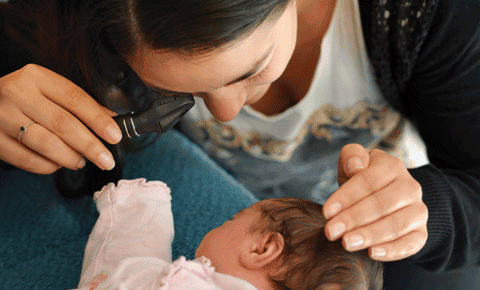
Trắc nghiệm: Thế nào là trẻ sơ sinh non tháng?
Trẻ sơ sinh non tháng rất cần được chăm và điều trị thật tốt để giúp giảm nguy cơ gặp phải các di chứng về tinh thần, vận động và sự phát triển sau này. Cùng theo dõi bài trắc nghiệm dưới đây để có thể nhận biết trẻ sơ sinh non tháng và có thêm kiến thức chăm sóc, nuôi dưỡng tốt nhất cho trẻ.The following content is prepared under supervision of Thạc sĩ, Bác sĩ y khoa, Ma Văn Thấm , Nhi , Phòng khám Đa khoa Quốc tế Vinmec Dương Đông(Phú Quốc)
3. Prepare for an eye exam
3.1 Register before the examination date Before the examination, the child will be given a pupil dilator so that the doctor can observe the entire retina, so it is necessary to go to the clinic for an appointment in advance (when you go to register, you do not need to bring the child with you). ) and bring the child to the scheduled date and time.3.2 Abstain from feeding for at least 1 hour During the examination, the child often cries. To avoid a dangerous (possibly fatal) milk aspiration, the child needs to be fasted from the moment the pupil dilator is instilled.
Bring all necessary papers such as hospital discharge paper, referral for eye exam, antenatal check-up, mother's ultrasound, appointment letter for follow-up examination.

4. Why should you choose Vinmec to prevent and treat retinopathy in premature babies?
As a key area of Vinmec Health system, Pediatrics Department always brings satisfaction to customers and is highly appreciated by industry experts with:
Gathering a team of top doctors and nurses in Pediatrics : consists of leading experts with high professional qualifications (professors, associate professors, doctorates, masters), experienced, worked at major hospitals such as Bach Mai, 108.. Doctors All doctors are well-trained, professional, conscientious, knowledgeable about young psychology. In addition to domestic pediatric specialists, the Department of Pediatrics also has the participation of foreign experts (Japan, Singapore, Australia, USA) who are always pioneers in applying the latest and most effective treatment regimens. . Comprehensive services: In the field of Pediatrics, Vinmec provides a series of continuous medical examination and treatment services from Newborn to Pediatric and Vaccine,... according to international standards to help parents take care of their baby's health from birth to childhood. from birth to adulthood Specialized techniques: Vinmec has successfully deployed many specialized techniques to make the treatment of difficult diseases in Pediatrics more effective: neurosurgery - skull surgery, stem cell transplantation. blood in cancer treatment. Professional care: In addition to understanding children's psychology, Vinmec also pays special attention to the children's play space, helping them to have fun and get used to the hospital's environment, cooperate in treatment, improve the efficiency of medical treatment.
Please dial HOTLINE for more information or register for an appointment HERE. Download MyVinmec app to make appointments faster and to manage your bookings easily.





